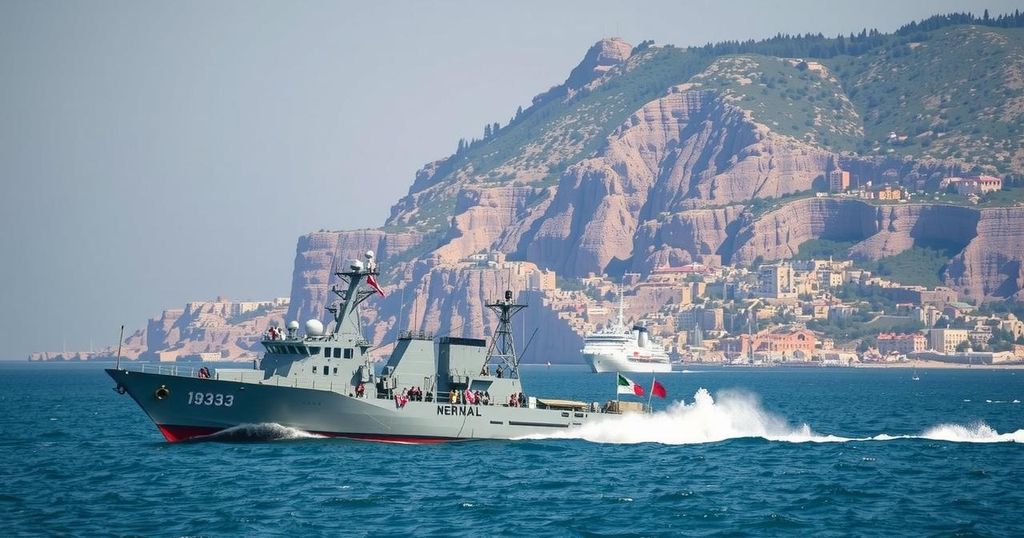Italy’s Defense Minister warns of a security threat as Russia is reportedly moving military resources from Syria to Libya, potentially destabilizing the Mediterranean region. This follows recent activity suggesting increased Russian presence and support for Libyan General Haftar, amidst concerns from NATO and the United States regarding Russia’s intentions.
Italy’s Defense Minister, Guido Crosetto, has expressed significant concerns regarding Russia’s strategic military movements from Syria to Libya, indicating a potential shift in security dynamics in the central Mediterranean. Mr. Crosetto remarked, “Moscow is transferring resources from its Syrian base at Tartus to Libya. That is not a good thing. Russian ships and submarines in the Mediterranean are always a concern, and even more so if instead of being 1,000 kilometers away they are two steps from us.” This shift comes amid the backdrop of Russian support for Syrian President Bashar Assad, which may now be transitioning towards a stronger presence in Libya, especially with tensions surrounding the operational status of Tartus.
Analysts suggest that there has been an uptick in Russian military activity related to Libya, with evidence of increased flights from Russia bringing personnel and cargo to support the Libyan National Army, led by General Khalifa Haftar. Recent satellite images and reports hint at Russian naval vessels possibly relocating from Tartus to ports in Libya, particularly Tobruk. Although definitive evidence of naval movement is still lacking, this development raises alarms for NATO and Western interests in the region. Ben Fishman, a senior fellow from the Washington Institute, noted, “I would be totally unsurprised if Russia is moving assets to Libya – they have been courting Haftar precisely for scenarios like this.”
While there are informal understandings that allow Russia to supply the Libyan National Army with training and equipment, the landscape remains complex. Unlike its candid military presence in Syria, a formal agreement for a Russian military base in Libya has not yet been publicized. Mohamed Eljarh, a consultant from Libya Desk, emphasized that, “I sense there could be a temporary arrangement with Russia to host more Russian assets now that Moscow is on the back foot in Syria.”
As the situation evolves, analysts like Claudia Gazzini highlight the significance of Turkey, which provides support to the rival Tripoli government, in any potential Russian military engagement in Libya. The interplay among these geopolitical entities continues to shape the dynamics in the region, with implications for international relations and national security.
The article discusses rising tensions in the Mediterranean due to Russia’s military movements from Syria to Libya. Following the recent departure of Syrian leader Bashar Assad from a face-off with rebels, Russian forces have begun reallocating their resources. The presence of Russian naval vessels in the vicinity of Libya represents a strategic maneuver that could alter the balance of power, particularly as there has been historic engagement between Russian officials and Libyan General Khalifa Haftar. This backdrop sets the stage for an intricate geopolitical landscape involving NATO, the U.S., and regional powers like Turkey, each maneuvering in response to Russian activities.
In summary, Italy’s apprehension regarding Russian military incursions into Libya is warranted as these movements threaten regional stability in the Mediterranean. The potential relocation of military assets from Tartus underscores Russia’s strategic objectives and may provoke a reevaluation of Western policies in response to heightened Russian influence. Analysts emphasize the importance of observing these developments closely, given the complex interplay of interests among various international actors in the region.
Original Source: www.defensenews.com







